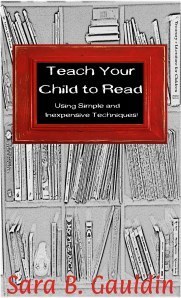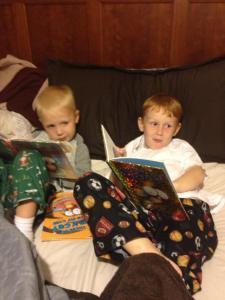“How can I help my child learn to read?”
This question has repeated itself hundreds of times during my professional career. Every parent wants to see their child achieve success, not only in school, but also in life. The truth is that it is absolutely imperative that a child becomes a proficient reader to have the capacity to be a capable student. The link between academic success and being able to function proficiently in the real world is no secret. The actual mystery for many families and even some educators is how to take a wiggly young child and somehow direct them to glean meaning from 52 characters arranged into words.
Almost a decade ago I completed my second term in the halls of higher education. I emerged from college victorious; I had not only earned a degree; I had also secured a teacher’s license from a state whose standards ranked among the highest in the entire country. I was confident. I was brash. I was ambitious. I was hired as a first-grade teacher; and suddenly I was stumped. I envisioned myself boldly changing the lives of young people by granting them access to the Holy Grail that is literacy. I was supposed to be the ultimate holder of the key that would unlock the doors to their education and the potential in their youthful lives.
I can recall that first week of school vividly. Each day, I would begin the school day with “reading” class. I would have the children take out a reading book. I would attempt to have them read from it. I would then have them laboriously tear out a sheet from a workbook and have them attempt busy work. Of course, this was next to useless; they could not read the workbook page any more than they could read the story. In truth, having them compete the page was more of an assessment that instruction. I was supposed to be instructing. I was then that I reached out to my colleagues for help. Thankfully, I was blessed to have a talented array of fellow teachers who were willing and able to listen to my panicked ineptitude and offer me meaningful tidbits of actual instructional techniques that I could apply, and thankfully, I was able to salvage the wreckage of that horrible first week.
Over the years, I have taught hundreds of children reading. I have learned many techniques, and I have worked with an extremely diverse population of students with an incredible array of ability levels, backgrounds and learning styles. During the journey I have discovered that there are some universal truths in the acquisition of literacy. I will share those tidbits and practices that I have incorporated into my classroom instruction over the years so that others can have access to the tips and tools that I had to learn to use on the fly and in the trenches of an early elementary school classroom.
I know that the field of education is continually growing and evolving. New understandings about the way the mind can learn, and fresh research based strategies are created, or renamed and recycled every year. I cannot claim any accolades for the research behind these techniques. I can only relate the experiences I have had while actively teaching young children to read.
I sincerely hope you find this collection of reading tips helpful and find at least a few strategies that you feel you could use!
Related articles
States Insist On Third Grade Reading Proficiency (huffingtonpost.com)
Why Learning to Read Early is Crucial for Young Children (thetaleofpiggypackfat.wordpress.com)
Textbooks recommended by Dept. of Education are full of errors: teachers (nydailynews.com)
Blog entry 7: Taking Reading Seriously (fchen35.wordpress.com)
Instruction for Information Professionals – Library Science 560 Autumn 2013 Training Module Part A (traviscmclark.wordpress.com)
Literacy rates affecting workers’ competence: employers (abc.net.au)
Skills-Based Versus Whole Language Instruction…The Best Approach to teaching Reading & Writing? (theliteracyladder.wordpress.com)
Teacher excellence – discussion board responses for Day 1 (ralphwoh.wordpress.com)
Three New Learnings (joyverbon.wordpress.com)
If You Suspect Your Child Has a Reading Problem (theacademicallyresponsiveparent.wordpress.com)






